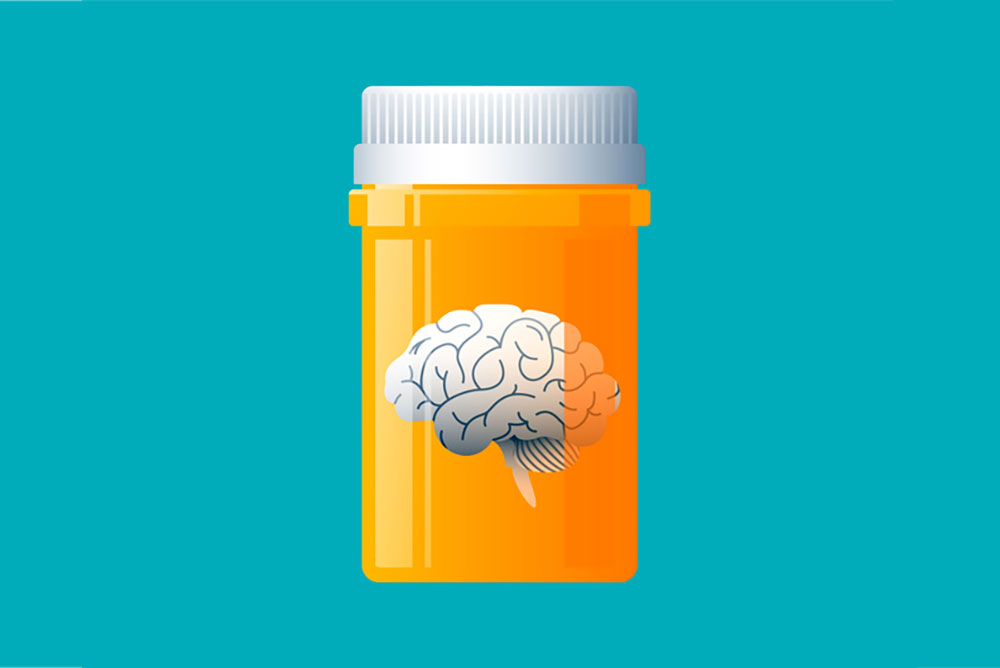
iStock
By Mary Carpenter
THE SYMPTOMS U.S. diplomats around the world experienced—known as the Havana syndrome—have no biological basis, according to the latest report. As a result, these symptoms, including severe headaches and vertigo, have become the most recent evidence of psychogenic, or psychologically based, factors playing an important role in physical disease. In addition, researchers at Harvard’s Program in Placebo Studies (PiPS) recently revealed involvement of psychogenic factors in the side effects experienced by Covid vaccine recipients.
Ever since Freud first wrote about “conversion disorders,” which include physical symptoms caused by fear, anxiety and other stressors, adding the word “psychogenic” to a diagnosis can make patients feel their complaints are not being taken seriously. The Harvard PiPS program is working to change this perception, in some cases using MRI and PET scans to document the body’s responses to placebo treatments—concluding, for example, that “placebo needles produce better pain relief than placebo pills but . . . placebo pills are better for insomnia.”
All disease is “biopsychosocial,” asserts Suzanne O’Sullivan in her book The Sleeping Beauties: “Havana syndrome was a powerful sociopolitical issue.” The title’s sleeping beauties refers to “resignation syndrome,” diagnosed in refugee children in Sweden who fell into coma-like states —which automatically qualified a family for asylum, and which later resolved when asylum was granted.
The “anomalous health incidents” reported by more than 1,000 U.S. diplomats around the world, first in Havana, included temporary loss of hearing and other symptoms similar to those of traumatic brain injury, according to Politico. The latest investigation failed to detect any biological evidence of these symptoms—or of the deployment of weapons, such as damaging electrical waves, by a foreign adversary.
But the seven government agencies involved in the Havana syndrome investigation had “varying levels of confidence” in the conclusion—and their conclusion avers only that involvement of a foreign adversary is “very unlikely.” Meanwhile, the Pentagon continues to test weapons that could cause these symptoms and is also working to develop weapons that could defend against such attacks.
Difficulties arise because the workings in the body of psychogenic factors are still “not well understood,” according to the Harvard Medical School news site. For the placebo effect, “some theories point to [patients’] expectations as the primary cause and others argue that nonconscious factors embedded in the patient-physician relationship automatically turn down the volume of symptoms.” Placebo treatments work most effectively for symptoms modulated by the brain, such as pain, stress-related insomnia, fatigue and nausea. The PiPS team has found that common chronic conditions improve when medical personnel fully disclose placebo treatment— called “open label” or “honest” placebo—for example, dispensing sugar pills in bottles clearly labeled “Placebo”—along with clear explanations to patients about the brain’s role in their symptoms.
“Functional disorders appear to hijack the normal neurological mechanisms by which we experience our body,” according to the New York Times. So-called “cheerleaders’ disease” that affected several groups of U.S. high school girls, for example, included Tourette’s-like tics and movements.
The nocebo effect, on the other hand, “occurs when a person experiences unpleasant responses after receiving a treatment that has no pharmacological properties,” according to the Harvard site. In the PiPS meta-analysis of 12 Covid vaccine studies, close to one-third of participants who received a placebo reported at least one adverse event.
The most common complaints in the placebo group were the “nonspecific symptoms like headache and fatigue—which we have shown to be particularly nocebo sensitive,” according to PiPS founder Ted Kaptchuk. Casting doubt on this gold standard of medical research, PiPS investigator Julia Haas noted that “adverse events after placebo treatment are common in randomized controlled trials.”
In addition, for PiPS study participants who received the active vaccine, greater anticipation of problems after a first dose can help explain the higher rate of adverse effects reported after their second dose. Altogether, according to the site, “the team’s analysis suggested that nocebo responses accounted for 76% of systemic adverse events in the vaccine group.”
“Informing the public about the potential for nocebo responses [to the Covid vaccine] could help reduce worries about Covid-19 vaccination, said Kaptchuk. And understanding this reason for side effects—which have been a major concern among antivaxxers—“might decrease vaccine hesitancy.”
“Medicine is based on trust,” according to Kaptchut. Ongoing PiPS studies are investigating the role of patients’ expectations as well as of the patient-provider relationship in clinical responses to acupuncture, both sham and genuine, for osteoarthritis of the knee and in the treatment of chronic low back pain—with objective measurements of sham treatment effects using fMRIs and PET scans. For asthma patients, one PiPS study found that “placebos can have effects similar to powerful medications, as measured by a self-appraisal of subjective symptoms, yet have no detectable effect on objective pathophysiology.”
An “exceptionally high rate of placebo response” occurs with treatments for depression,” according to PiPS research. Antidepressants have worked well for me: I have tried only once to wean myself off , with unpleasant and challenging results. I continue to be grateful for these antidepressants—and as a result for the placebo effect, whatever role it plays.
—Mary Carpenter regularly reports on need-to-know topics in health and medicine.
MyLittleBird often includes links to products we write about. Our editorial choices are made independently; nonetheless, a purchase made through such a link can sometimes result in MyLittleBird receiving a commission on the sale. We are also an Amazon Associate.

Brava Mary!
The head and the rest of the body are one organism…even if medical science lacks an explanation- yet! Thank you for another great article calling attention to this reality.